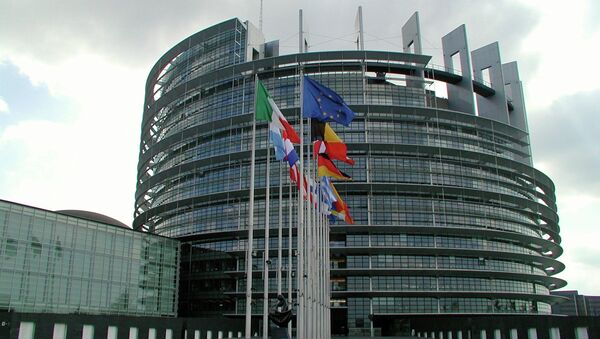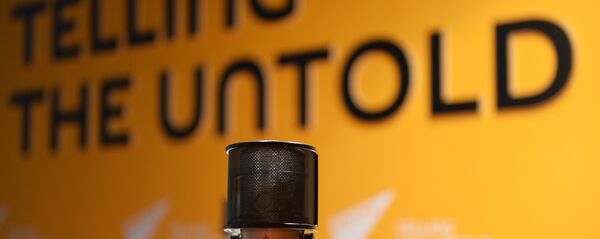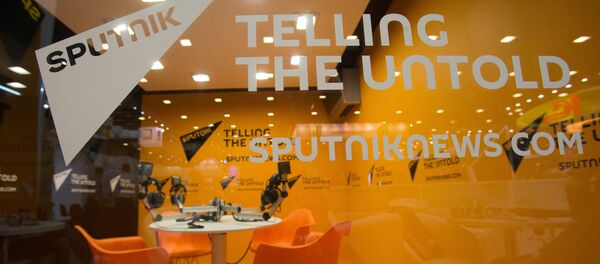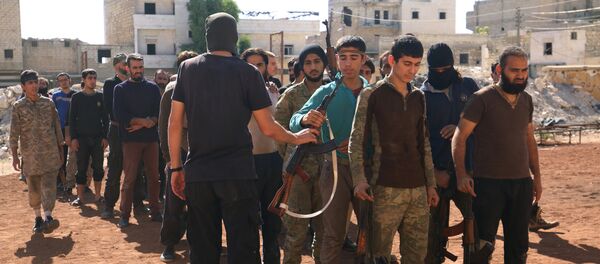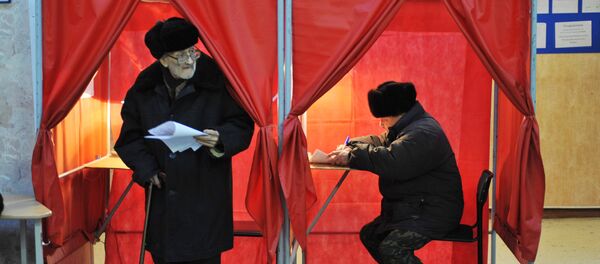The EU authorities are also expected to increase financing of the Euronews TV channel.
The non-binding draft document says that Russia is allegedly "aggressively employing a wide range of tools and instruments" to weaken the European Union.
DRAFT RESOLUTION ON EDGE OF CENSORSHIP
In order to counteract the so-called Russian propaganda, the document calls on the EU members states to cooperate with NATO to develop mechanisms of coordinated strategic communications and countering hybrid threats.
"National media in these countries [Eastern Partnership states] are often weak and not able to cope with the strength and the power of Russian media," the draft resolution said. The document includes propositions on the edge of introducing censorship against Russian media, for example, to "develop coordinated strategic communication mechanisms to support attribution and counter disinformation and propaganda in order to expose hybrid threats."
At the same time, the authors of the document are talking about the need for media pluralism and freedom of information.
NOT EVERYBODY IS SUPPORTIVE
Couso pointed out that the document did not mention the role of the US propaganda on legitimizing recent military invasions that resulted in chaos and the internal EU propaganda that allows only one interpretation of democracy, which can be regarded as a sign of supremacy.
Along with some other lawmakers, Couso demands recognizing Russia as a key partner and a global actor of the European Union in the sphere of international security and joint countering the Islamic State as well as demands lifting anti-Russian sanctions.
IGNORANCE OF ISSUE
"I was surprised to learn that RIA Novosti is a TV channel. The rest of the document is based roughly on the same knowledge of the subject. The authors of the resolution should begin with checking facts," Rossiya Segodnya International Information Agency's Editor-in-Chief Margarita Simonyan said.
A number of US and European politicians such as US Secretary of State John Kerry, Ukrainian President Petro Poroshenko spoke about threats allegedly posed by Russian media. They also named unrealistic sums of money allegedly provided to the Russian media outlets.
Moscow has repeatedly dismissed allegations about using cyberspace for aggressive actions.
EU, PARTNERS ALREADY TAKING MEASURES
Authorities of many EU states and countries striving for EU membership are already using repressive measures against Russian media despite alleged commitment to principles of freed expression.
Earlier this year, Lithuanian authorities deported an All-Russia State Television and Radio Broadcasting Company (VGTRK) crew. In October 2015, Estonian authorities annulled visas of other VGTRK crew members.
In spring 2015, Ukraine issued a list of 115 Russian media, whose accreditation was suspended over alleged threat to national security of Ukraine. Kiev is creating obstacles for Russian journalists entering Ukraine as well.
On October 24, 2014, the Polish Foreign Ministry annulled Rossiya Segodnya journalist Leonid Sviridov's accreditation. The Polish authorities deprived him of residence permit and ordered the correspondent to leave the country. Sviridov left Warsaw for Moscow to begin legal proceedings against the authorities' decisions. The case attracted attention of the Organization for Security and Co-operation in Europe's (OSCE) Representative on Freedom of the Media Dunja Mijatovic.
Russian journalists are often banned from entering Moldova. In October 2015, there were two cases of detaining NTV TV channel’s journalists at the Chisinau airport. In March, a VGTRK crew heading for the Gagauzia region to cover local elections was also prohibited from entering the country.
In March, Lithuanian authorities blocked the Sputnik news agency and announced closing its website in the.lv domain extension. Sputnik employees were questioned by security services of Latvia and Estonia.
Later that month, Swedish security services issued a statement accusing Russia of waging a psychological war emphasizing the role of Sputnik and RT.

